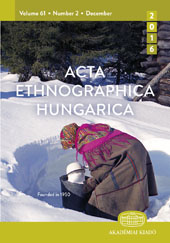Modern Shi’i Islam and the narrative of social power: The views of Muhammad Husayn Fadlallah
Modern Shi’i Islam and the narrative of social power: The views of Muhammad Husayn Fadlallah
Author(s): Bianka SpeidlSubject(s): Islam studies, Social Theory, Studies in violence and power, Contemporary Islamic Thought, Sociology of Religion
Published by: Akadémiai Kiadó
Keywords: Shi΄ism; empowerment; mobilisation; solidarity; organic unity; equilibrium; shari΄a; faith;
Summary/Abstract: In modern Shi΄i Islam, power constitutes a major concern for thinkers and movements alike. Above all, Muhammad Husayn Fadlallah stands as the most systematic Shi΄i thinker who produced an Islamic theory of power. The present article analyses Fadlallah’s concept of social power. In Islam and the Logic of Power (al-Islam wa-mantiq al-quwwa), he emphasised the importance of social solidarity, justice, and the obligation of “commanding right and forbidding wrong” as a means to create the ideal society. For him, this social model has a reciprocal relation to social power. Muhammad Husayn Fadlallah tells the tale of two societies: the weak and the strong, arguing that beliefs, unity and values determine the power of a community. He claims that the strong society is best illustrated by the first Islamic community. He confronts it with the weak society which lacks unity and solidarity – echoing to a great extent contemporary Lebanon. Fadlallah’s social theory – embedded in his theology of power – transforms spiritual power into a collective deployment of action. He draws on a wide range of elements (Sunni, Shi΄i and Marxist) to create a coherent system of power in which social power is a mediator between the ideology of power and its political manifestation.
Journal: Acta Ethnographica Hungarica
- Issue Year: 60/2015
- Issue No: 1
- Page Range: 225-237
- Page Count: 13
- Language: English
- Content File-PDF

